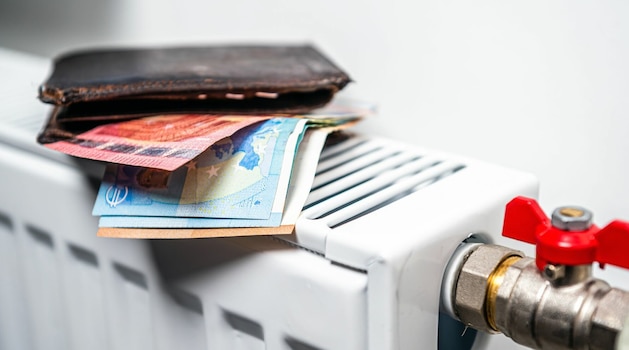DOMRADIO.DE: Through a hardship fund, people in need in Berlin who can no longer pay their bills can get financial help. How do you feel about this measure?
Prof. Dr. Ulrike Kostka (Diocesan Caritas Director in the Archdiocese of Berlin): We as Caritas expressly welcome this. It’s a very good tool. But it also has the starting point that people really need to be on the verge of an energy lockdown. But that’s definitely a very good thing about Berlin.
DOMRADIO.DE: How exactly can you apply for the money as a family in need?
Kostka: You can do it online, as an individual or as a family, and then you have to present the relevant things. Like I said, a lockdown really must be imminent. This is the situation.
But I find it problematic that you have to apply for the whole thing online. Because that overwhelms many people, for example older people who may no longer be able to do it. Of course they need help from others.
DOMRADIO.DE: The Association of War Disabled is now demanding that all other federal states follow suit and set up a hardship fund for those affected. Why do you think this hasn’t been implemented yet?
Kostka: There are some municipal hardship funds. This is another special situation in Berlin because we have a city-state here. But in general, of course, it would be very good if this were available nationwide in Germany, because many people are overwhelmed by the energy costs.
It can often be about people who have never received any benefits from the social welfare office or from a job center, but who suddenly find themselves in this situation.
Accordingly, it would be very good if this were introduced across the board. Above all, when the utility bills come.
DOMRADIO.DE: Around 85 percent of the Berlin population is eligible to apply. In view of these high numbers, shouldn’t other measures be taken urgently when apparently just 15 percent of Berliners can pay their bills without the hardship fund?
Kostka: It’s not like that. The hardship fund only takes effect if nothing else works. Accordingly, many people will also benefit from other things, such as housing benefit increases or others. The crucial thing is that many people first need to know that this help is available. This is an information topic.
The other point is that the application channels are relatively extensive. We notice that information and advice is given in many places. That’s why we’re happy that we can expand consulting and also do very intensive consulting.
Working through the application forms and overcoming the shame is a challenge for many.
DOMRADIO.DE: How do you support this as Caritas? How to contact you
Kostka: We have counseling centers, general social counseling and debt counseling. But the topic can also be addressed in many other places. We also offer online consultation. I can highly recommend that. And we have the power saving check. These are very different types of advice. Many other charities have them too.
It is important that people are not ashamed to seek advice. Then we also try to support them, especially when filling out the forms and everything that goes with it.
It’s great that we received 500,000 euros from our Archdiocese from the additional church tax funds that arise from the energy cost flat rate. This allows us to expand advice and help in individual cases.
DOMRADIO.DE: What is the situation like, how are people in Berlin doing because of the increased energy prices?
Kostka: People aren’t doing particularly well, because inflation is on top of that. These two aspects together are a great burden for many. Many people are concerned.
But my biggest concern is that we will experience it, for example in Fürstenwalde in Brandenburg. There are no such hardship funds there. We see that people lose their homes because of this. This is one of the most important points that we as Caritas want to draw attention to.
It must not happen that people lose their homes because of rent debts and energy debts. Because once you have lost your apartment, it will be very difficult to find a new one.
I found out from our counseling centers in Fürstenwalde that this is happening regularly. That is why we as Caritas in the Archdiocese of Berlin are calling for a nationwide moratorium against evictions and home loss due to energy debts. That just can’t happen. This is a very important point.
The other thing is, of course, how things will look in 2024 when the gas price brake and the electricity price brake expire? That’s one of the themes. We notice that people are afraid of the future. It not only takes care of the current situation, but also the future situation. It will also be about how things will continue from March next year.
That is why it is of course important that we as Caritas and as a church as a whole continue to campaign politically to ensure that people do not continue to find themselves in existential difficulties in the coming year.
The interview was conducted by Katharina Geiger.
Street dog Sammy was supposed to be handed over to his new owner at Munich Airport. But the six-month-old four-legged friend escaped. The search for him, which lasted more than a week, is now coming to a happy end.
In his autobiography “Spare” Prince Harry once again unpacks about his family. So far, as usual, she has been very silent. But public reluctance is deceptive. Position is taken in the background.
The original of this article “First federal state sets up hardship fund: “Very good instrument”” comes from DOMRADIO.DE.








